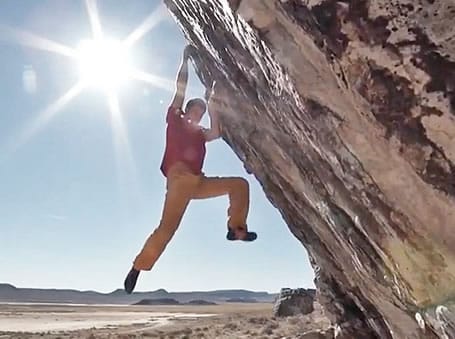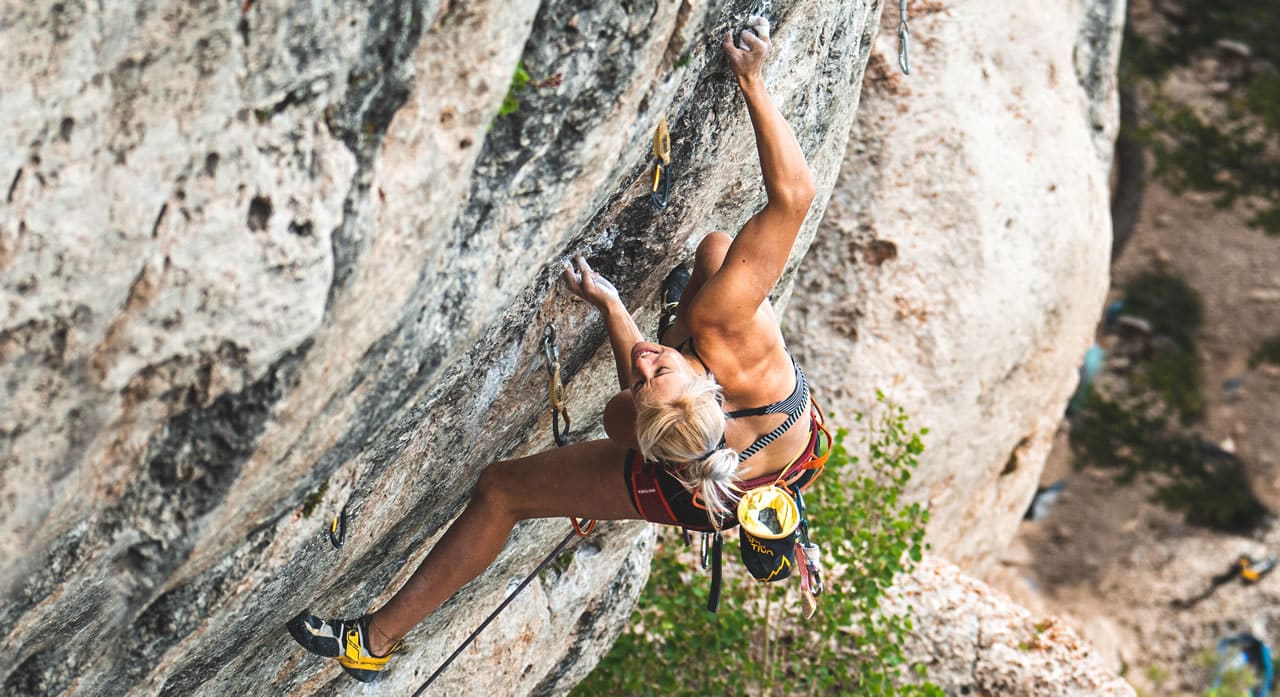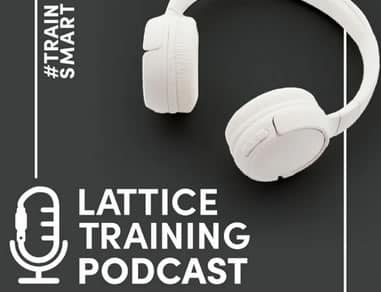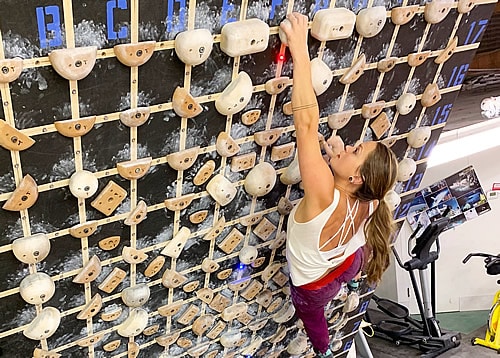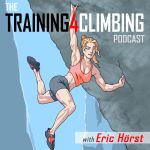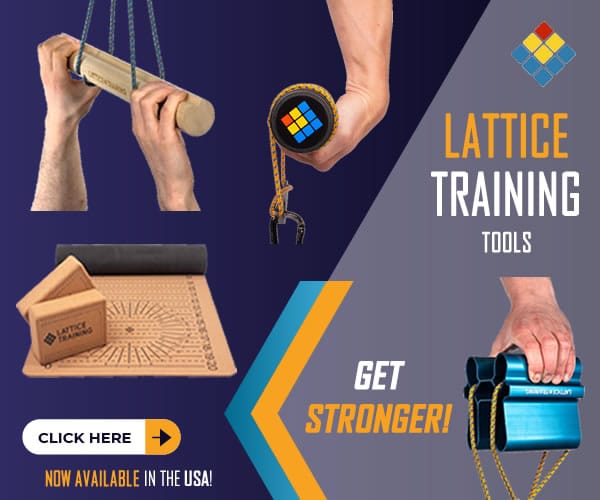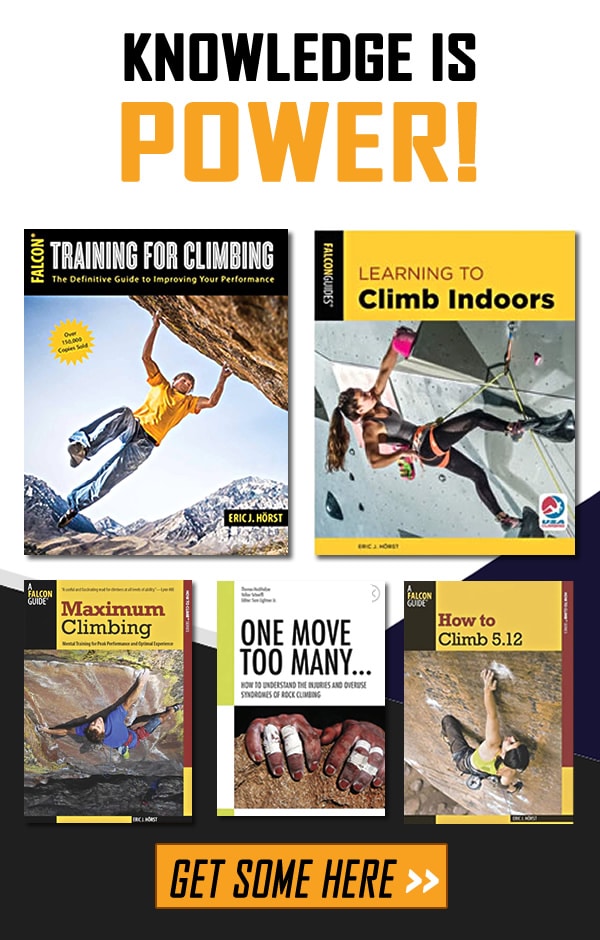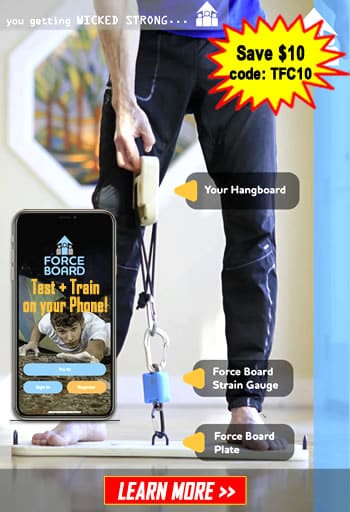This may be the most important podcast you’ve heard in a long time…or, perhaps, ever!
If you engage in hard finger training, frequently push your physical limits, and/or occasionally experience tendon or joint pain…then this podcast could be game-changer for you.
Traditionally, tendons and ligaments (such as the A2 pulleys of the fingers) have been viewed as inert structures that changed little after adolescence. We now know, however, that these connective tissues are dynamic and metabolically active. New studies provide clues as to how athletes can play an active role in developing stronger, more robust, and higher performance connective tissues. This is a revolutionary concept for hard-training climbers…and it may change the way you train, eat, and recover going forward.
This podcast is the second in a series on sinew training for improved health and enhanced performance. Revisit podcast #33 for an introduction to the topic. Podcasts #34 and #35 will break more new ground on the topic of training for climbing—don’t miss them! Listen now in the media player below, or subscribe to “Eric Hörst’s Training For Climbing” podcast on iTunes, Spotify, Stitcher, or you favorite podcast App.
RUNDOWN
0:15 – Introduction to this series of 4 podcasts on connective tissue training—this is revolutionary information.
2:07 – Question: What sport is as hard on tendons and ligaments as climbing? Is there one? Perhaps not. Consider that finger flexor tendon pulleys are just 1 to 2 mm thick, yet they have to carry a large percentage of a climber’s body weight.
4:00 – Collagen-based tissues carry the load, from muscle to fingertips, with every hold you grab…every move you make…every lunge you make!
6:30 – The best climber in the world isn’t the best if he’s injured. Injuries, big and small, are setbacks that change your trajectory.
7:35 – New paradigm: Your top priority in training for climbing: Develop stronger tendons, pulleys, and muscle matrix.
8:45 – Sinew have poor blood flow, and therefore may be poorly nourished.
9:30 – Key distinction: collagen breaks down with every intense work. Collagen synthesis takes 72 hours (or more) to remodel the connective tissue.
11:00 – Too much collagen breakdown and too little recovery time between workouts may lead to injury.
11:50 – Sinew gets much of their nutrition from fluid diffusion during mechanical loading (climbing and training). Therefore, consuming Supercharged Collagen 30 to 60 minutes training is the optimal nutritional protocol for supporting collagen synthesis in finger tendons and ligament pulleys.
15:30 – Anything you can do to promote collagen synthesis and connective tissue remodeling is a game-changer for a hard training climber. It’s with this goal in mind that I founded PhysiVantage.
16:30 – Learn about my new brand PhysiVāntage and our flagship product, Supercharged Collagen. This is a totally novel and premium produce.
19:40 – The genesis of PhysiVāntage—almost three years in the making. Here’s the back story.
22:00 – How decreasing collagen turnover after age 30 slows recovery and may increase the risk of injury.
25:50 – Most important amino acids for collagen synthesis are glycine, proline, hydroxyproline—these are hard to come by if you don’t consume a lot of meat.
27:30 – I created Supercharged Collagen to provide climbers with the perfect glycine and proline-rich pre-workout supplements for feeding their sinew the nutrients for optimal collagen synthesis. It’s research-based and athlete-tested.
32:00 – A quick research review. Here are six of the more than a dozen studies that I drew on in developing Supercharged Collagen.
41:20 – 6 questions and answers…
41:45 – Question #1: Will Supercharged Collagen fix my injury? (No, but it may enhance your rehabilitation program and, possibly, accelerate your return to climbing.)
43:20 – Question #2: How much Supercharged collagen should I consume each day? (One to three servings per day, depending on your situation.)
45:15 – Learn the benefits of doing a brief (15 minutes) “protective workout” each morning. This may be the biggest secret to building stronger tendons and ligaments in the long term!
47:40 – Question #3: What usage do I recommend for injured climbers? (First, see a doctor for a correct diagnosis. Second, research indicates that a 15 to 20 gram serving, 30 to 60 minutes before exercise, is ideal for supporting injury rehab.)
49:20 – Question #4: Can I consume Supercharged Collagen post-workout as a protein source for muscles. (Yes! But consuming a high-quality Whey protein is just as good for muscle recovery.)
50:35 – Question #5: Is there a vegan version of Supercharged Collagen? (No, there’s no such thing as vegan hydrolyzed collagen.)
52:08 – Question #6: How long does it take to feel the beneficial effects of Supercharged Collagen? (It’s unlikely you’ll feel much difference in your sinew short-term, however, multiple studies have shown a statistically significant reduction in joint pain from several months of collagen peptide use.)
55:00 – I formed PhysiVantage to my difference-making supplements for passionate climbers who place great demands on their bodies! Visit PhysiVantage.com and save 15% off non-sale items with the code “podcast15” at checkout.
56:40 – Info on three great events I’ll be appearing at this summer. Then 26th annual International Climbers Festival in Lander, WY (July 10 – 14, 2019). The Canada Strong Climbing coaches conference (August 6 – 9, 2019). Climbing Medicine Canada (August 12 – 14, 2019) in Squamish, BC.
59:25 – If you enjoyed this podcast—please SHARE it with your friends and on your social media, and consider writing a review on iTunes.
Get 15% off at PhysiVantage.com with the discount code PODCAST15 at checkout.
Instagram – @PhysiVantage
Facebook – @PhysiVantage
For a comprehensive study of Training for Climbing, check out the 3rd edition of Hörst’s best-selling book!
Follow Eric on Twitter @Train4Climbing
Check out Eric’s YouTube channel.
Music by: Misty Murphy
SUBSCRIBE!
Subscribe on iTunes (or other podcast player) to “Eric Hörst’s Training For Climbing” podcast. You can also listen to the T4C podcast on Stitcher and Spotify! Please write a review on iTunes!
Copyright © 2000–2019 Eric J. Hörst | All Rights Reserved.

